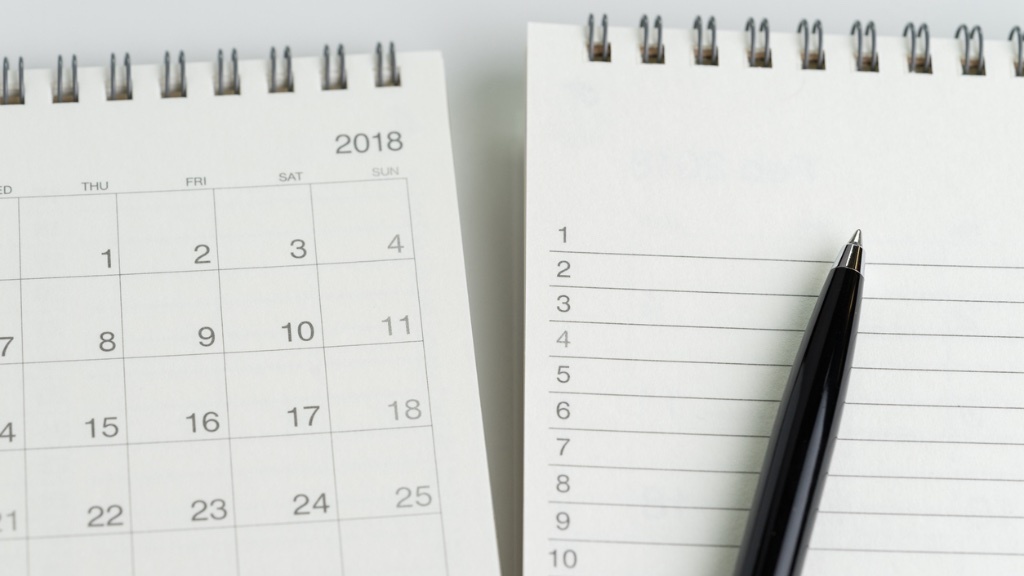How to tell the calendar and the to-do-list apart
Datum: 2024-11-13 10:13

Since you do best in gathering all your to-do-tasks in a single place, does this mean that you have to choose between having a to-do-list or a calendar? Because if you would have both, would this not mean that you have two places for what you are going to do instead of one?
The answer is no. You need both a to-do-list and a calendar. You will not end up having tasks all over the place since you will never write the same things on the to-do-list as you do in your calendar.
For you who prefer listening to reading, this post is also available as an episode of the “Done!” podcast:
Separating the wheat from the chaff
You only write things you have to do at a specific time in the calendar, meaning tasks and things that are important that you do at that specific moment. Meetings are a given since they most likely commence at a particular time. You should also write any phone calls which you have promised to make at an agreed-upon time, in the calendar.
Things you have to do on a particular day but which you can do at any time during that day, are best kept on the to-do-list but with an assigned due date for the day in question.
No more rearranging and relocating
But why? Well, even if you block free spaces in the calendar for doing certain to-do-tasks, you might not end up doing that particular task at that particular time anyway (since something might come up that at the moment feels more important and which you then choose to do instead). When this happens you have to resort to either moving the booking to another free slot at some other time or make sure that you from time to time take a look backward in your calendar to identify tasks that have gone astray and that might look as if they have been completed (since they are noted in the past tense) but which are not.
Both alternatives are sure to make things more difficult for yourself. You will spend more time than you should on administrating notes, calendar bookings, and tasks, and it will not be as easy to relax knowing you have a complete overview of all your tasks in a single location. Who knows, you might have missed something that will surface much later when it is already way passed due…
Do this
If you want to distinguish between and clarify how you use the calendar as opposed to the to-do-list, then skim through the next few weeks to come in your calendar and look for things you have written in it that do not necessarily need to be done at that particular time. If you find any such tasks, remove them from the calendar and write them on your to-do-list instead.
And, go the other way as well. Skim through your to-do-list and look for:
- To-do-tasks which actually need to be done at a particular time, and
- Tasks that you need to reserve time for in the calendar to get done.
Add these as bookings in the calendar.
From here on out, when you are about to make note of a task you will not do immediately, ask yourself: ”Does this need to be done at a specific time?” — if so, create a calendar-booking; if not, add it to the to-do-list.
More flexible and less time wasted
If you differentiate between the calendar and the to-do-list and make it very clear to yourself how each is properly used, it will also become more clear what’s what in the calendar. It will become easier to tell if you are actually available when someone asks you to meet and your calendar will serve you in the best possible way. You will no longer waste time shuffling items back and forth in the calendar and can rest assured you have not forgotten to do something important that you only made note of in the calendar a few weeks back.
What’s your way?
Do you have a trick or a rule of thumb that helps you determine when something goes in the calendar and when it doesn’t? Both others and I can use your best tips — please feel free to share them in an email to me.
(Have you used a template calendar to make your week turn out how you want it?)
There's more!

If you want more tips on how to create good structure at work, there are many ways to get that from me - in podcasts, videos, books, talks and other formats.




